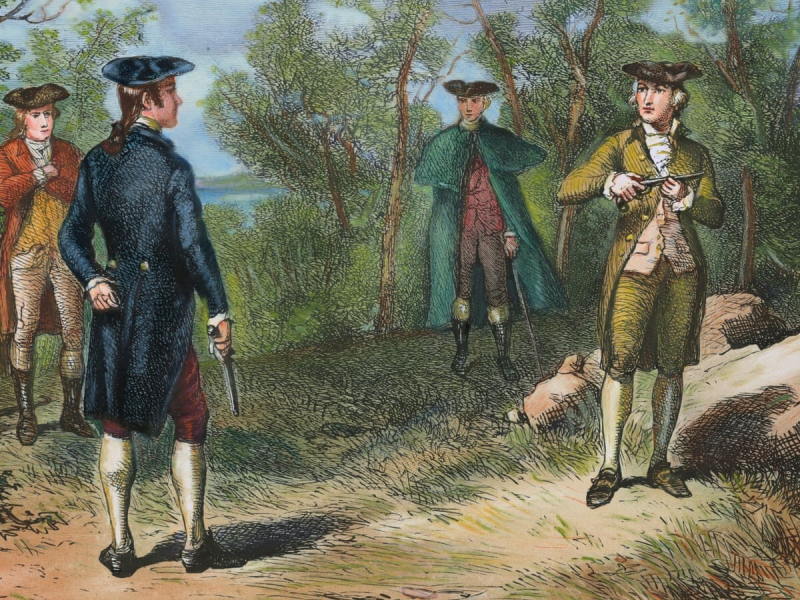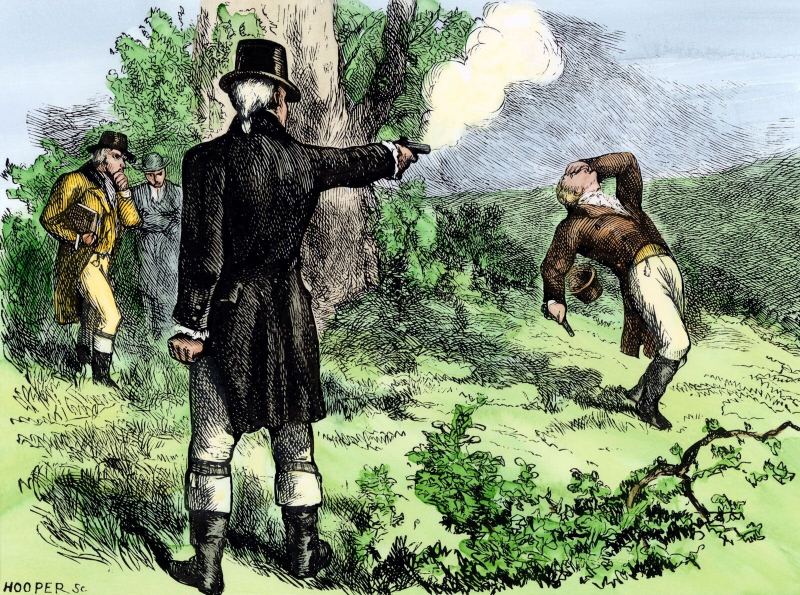He was twice charged with murder for that duel
A New York newspaper paraphrased Alexander Hamilton as declaring that he "viewed Mr. Burr to be a dangerous man and one who ought not to be trusted with the reins of government" in opposition to such a move. Additionally, the paper mentioned instances in which Hamilton had spoken an even "more terrible view of Burr." After a few more letters, Burr demanded Hamilton retract or deny making any statements that were damaging to his reputation during the previous 15 years. In response, Burr challenged Hamilton to a duel, or private combat, under the codified dueling laws known as the Code Duello when Hamilton rejected his demand for an apology. In New York, dueling had been declared illegal, and anyone found guilty faced the death penalty. Although it was prohibited in New Jersey as well, the repercussions were milder.
The two met on July 11, 1804, in a rural area of Weehawken, New Jersey. Burr fired to murder whereas Hamilton purposefully fired into the air. The next day, Hamilton passed away in New York City from his injuries. Burr's political career was essentially over when Hamilton died under dubious circumstances. Burr was accused of several offenses, including murder, in both New York and New Jersey, but he was never put on trial there. His daughter and her family lived in South Carolina, where he escaped, but he soon came back to Philadelphia and then to Washington to finish out his tenure as vice president. For a while, he stayed away from New York and New Jersey, but all of the allegations against him were finally withdrawn. Given that Hamilton was shot in New Jersey but passed away in New York, the indictment in the case of New Jersey was dismissed.














